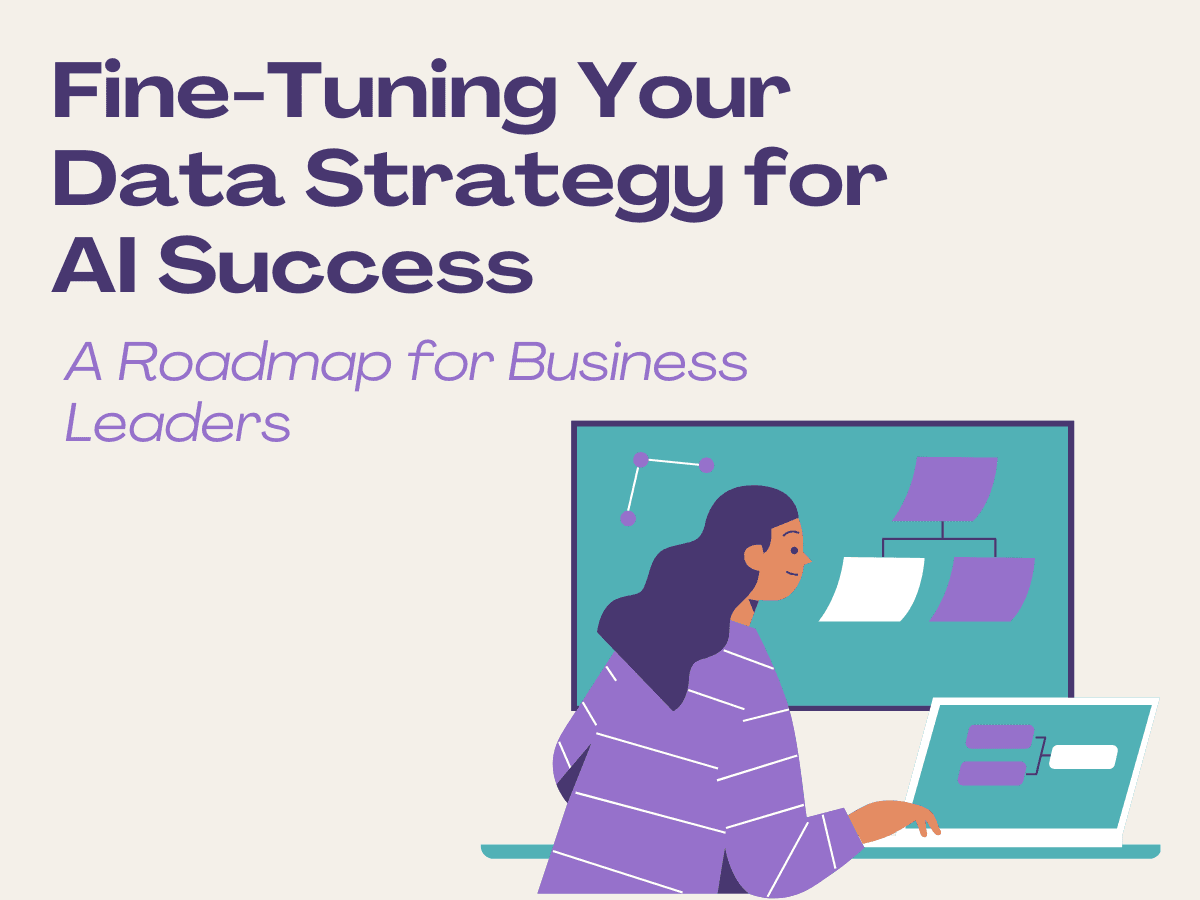Fine-Tuning Your Data Strategy for AI Success: A Roadmap for Business Leaders

In today's dynamic technological landscape, artificial intelligence (AI) is heralded as a game-changer for businesses across industries. However, leveraging AI's full potential requires more than just advanced algorithms and computing power. The secret ingredient to AI success lies in a robust data strategy. Just as a high-performance vehicle depends on quality fuel, AI systems thrive on well-curated data. This blog explores the pivotal role of data strategy in AI initiatives and offers actionable insights to help businesses stay ahead.
The Cornerstone of AI: Crafting an Effective Data Strategy
At the core of every successful AI application is a solid data strategy. High-quality data is the lifeblood of AI, driving accuracy and efficiency in machine learning models. Think of data as the foundation upon which all AI systems are built. A comprehensive data strategy involves meticulous data collection, cleaning, and organization, ensuring that the inputs to your AI systems are precise and relevant.
Consider the case of a retail company aiming to enhance customer behavior analysis using AI. If their datasets are outdated or incomplete, the resulting AI insights can lead to misguided business decisions. By implementing a strong data strategy, businesses can ensure their AI systems have access to the most valuable data, enhancing decision-making processes and outcomes.
Aligning Data Strategy with Business Objectives
Developing a data strategy goes beyond mere data collection—it's about aligning data initiatives with overarching business goals. Understanding what your organization aims to achieve with AI is crucial. Whether it's improving customer satisfaction, optimizing operations, or driving innovation, clearly defined objectives should guide your data strategy.
Take the healthcare sector, for example. A provider looking to enhance patient outcomes through AI must focus on specific goals such as reducing readmission rates or personalizing treatment plans. By targeting the collection of relevant patient information, healthcare providers can ensure their AI initiatives deliver measurable value, ultimately improving patient care and operational efficiency.
Overcoming Challenges and Seizing Opportunities
Implementing a robust data strategy presents its own set of challenges, from data privacy concerns to integration issues and the sheer volume of data. However, these challenges can also open doors to innovation. Emerging technologies like cloud computing and machine learning provide solutions to these hurdles. Cloud platforms offer scalable storage and processing capabilities, while machine learning algorithms can automate data cleaning and analysis, turning potential roadblocks into stepping stones.
For instance, a logistics company can leverage cloud-based AI to optimize delivery routes in real-time, reducing fuel costs and enhancing customer satisfaction. By strategically refining their data strategy to embrace these technologies, companies can transform challenges into competitive advantages, positioning themselves ahead of the curve.
Paving the Way for Future Success
As AI technology continues to evolve, businesses must adapt their data strategies to stay ahead. By prioritizing high-quality data collection, aligning data practices with business goals, and leveraging cutting-edge technologies, companies can ensure their AI initiatives not only survive but thrive. With a partner like ShineForth—bringing deep expertise in software development and AI-driven solutions—businesses can confidently build and execute a data strategy that drives real impact. The journey to AI success is ongoing, but with the right guidance and a finely-tuned approach, the path forward becomes clear and full of opportunity.